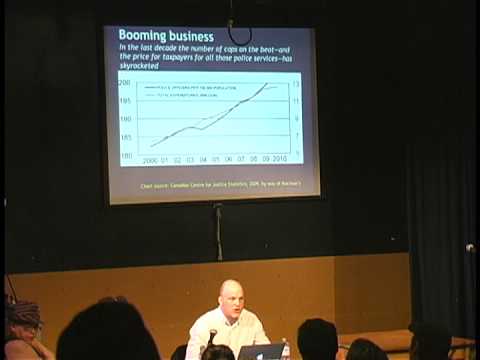New report finds declines in drug use related with harm reduction companies, not regulation enforcement efforts.
Vancouver, B.C. (June 24, 2013)A complete report on the drug situation in Vancouver shows wellness-concentrated procedures have been additional productive than federal regulation enforcement steps at cutting down illicit drug use and bettering community wellness and security.
Scientists at the Urban Well being Investigate Initiative (UHRI) at the BC Centre for Excellence in HIV/AIDS compiled 15 decades of information in response to the ongoing community and particular person wellness-connected harms ensuing from illicit drug use, which include HIV and hepatitis C transmission.
“Drug trends in Vancouver are shifting, with fewer people injecting drugs and additional people ceasing their use, a result of the impressive harm reduction and dependancy cure applications carried out,” stated Dr. Thomas Kerr, report co-creator and UHRI co-director. “It is significant policymakers at all amounts of govt choose be aware of this evidence and aim efforts on methods tested to be additional productive. Continuing to make investments in failed procedures like the war on drugs does little to minimize wellness and social harms.”
The Drug Scenario in Vancouver report includes in depth information and facts on drug use trends, drug availability, HIV charges, and behaviors between some of the city’s most susceptible people who use illicit drugs. The evaluation discovered:
Much less people using injection drugs
Significant decrease in syringe sharing and connected HIV and hepatitis C transmissions
Boost in drug cessation and entry to dependancy cure
Unchanged ease of entry to and affordability of illicit drugs
Amid people who use drugs in Vancouver, methadone routine maintenance cure increased from eleven.seven per cent in 1996 to 54.5 per cent in 2008, remaining secure because. In addition, experiences of problems accessing dependancy cure dropped from 19.nine per cent in 1996 to as reduced as three.2 per cent in 2006, and has remained under 1996 amounts. There was a corresponding upward pattern of injection drug use cessation during a equivalent interval, with a level of just .four per cent in 1996 when compared to forty six.6 per cent in 2011. Conversely, scientists discovered concerning 2000 and 2011 illicit drugs remained effortlessly obtainable and prices have been secure.
“The availability of drugs in Vancouver is troubling, however, steady with international trends highlighting the over-all success of industry variables in generating drugs freely and effortlessly readily available,” stated Dr. Evan Wooden, report co-creator and Canada Investigate Chair in Interior Metropolis Medication at UBC. “While there have been community wellness benefits of the harm reduction approaches, the greatest technique is to grow evidence-centered dependancy treatment plans to minimize demand for drugs and minimize the size of the drug industry.”
While there has been an over-all decrease in illicit drug use because 2007, there has been an enhance in the use of some drugs. Amid street-concerned youth, for instance, there is a significant level of crystal methamphetamine use, with charges of injection having doubled because 2010.
“Needle exchanges and the supervised injection facility have tested to conserve life, but drug use trends are shifting and procedures and applications need to mirror these variations,” stated Lorna Chicken, a drug consumer and member of the Western Aboriginal Harm Reduction Culture. “We need to have additional harm reduction interventions, like safer crack smoking kits, supervised intake amenities for people who smoke illicit drugs, and applications concentrated on at-possibility youth.”
Amid the key ongoing variables contributing to significant-possibility behaviours related with illicit drug use is the prevalence of unstable housing between people who use drugs, which proceeds to be concerning fifty and 70 per cent. Unstable housing includes homelessness, shelters, and One Space Occupancy inns.
“Homelessness and unstable housing amplify harms skilled by drug end users,” stated Dave Hamm, board member of the Vancouver Place Community of Drug People (VANDU). “High-quality inexpensive housing is essential to cutting down the harms related with using at this time illicit drugs and connecting drug end users to supports and applications that will support them live healthful, effective life.”

